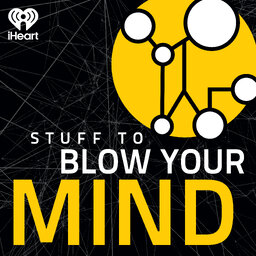Future Shock 2023, Part 3
In the 1970 book “Future Shock,” futurist Alvin Toffler outlined a vision of post-industrial society in which rapid technological and social changes outstrip the average human’s ability to cope. More than half a century later, how does this idea hold up and are contemporary humans victims of future shock? In this episode of Stuff to Blow Your Mind, Robert and Joe discuss how it seems to be panning out.
In 1 playlist(s)
Stuff To Blow Your Mind
Deep in the back of your mind, you’ve always had the feeling that there’s something strange about re…Social links
Follow podcast
Recent clips

From the Vault: Mystery Cults, Part 3
1:03:47

Weirdhouse Cinema Rewind: Forbidden Planet
1:34:55

From the Vault: Mystery Cults, Part 2
53:07
 Stuff To Blow Your Mind
Stuff To Blow Your Mind